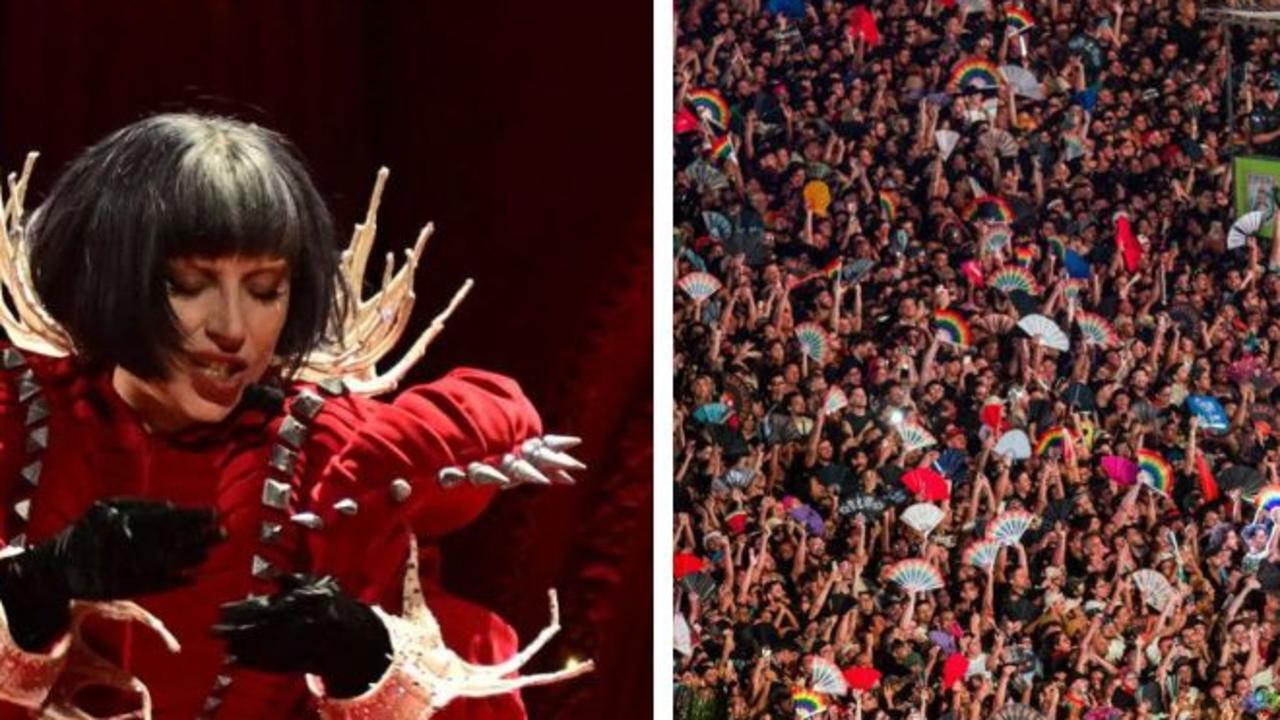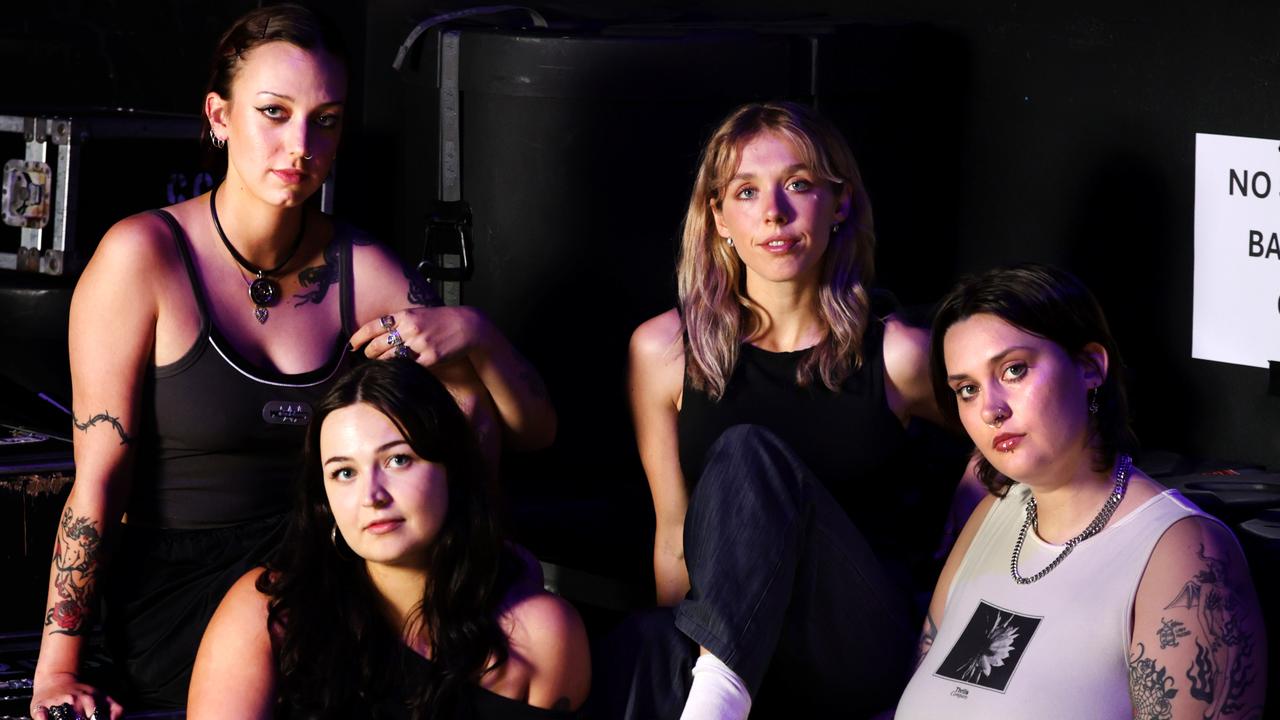Sheldon Riley reveals ‘dark place’ that inspired Eurovision song
When he was 15, Sheldon Riley wrote a suicide note and posted it to Facebook. Four years later, it became his triumphant song of survival.
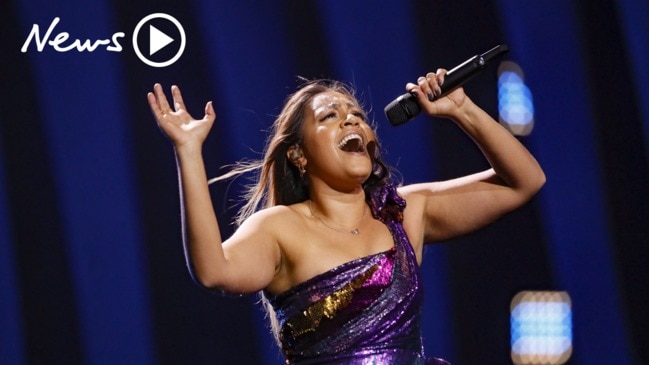
Music
Don't miss out on the headlines from Music. Followed categories will be added to My News.
When he was 15, Australia’s Eurovision artist Sheldon Riley “didn’t think I had a fighting chance.”
After years of navigating life as a neurodivergent child, diagnosed with Asperger’s Syndrome when he was six, and coming out as a teenager, Riley wrote a suicide note and posted it to a Facebook account.
He rediscovered that note four years later and its contents would form the verses of Not The Same, the triumphant song of survival which he will perform in Turin, Italy as he realises his lifelong dream to perform in the Eurovision Song Contest.
Riley, who grew up in a deeply religious family, now loving and supportive of his differences, was in a “dark place” when he wrote the note to himself.
“When I wrote the words ‘I was told at six years old, they would avoid me if my heart was cold’ it was because I was told a lot as a kid that if I didn’t start acting more like a boy, acting more warm, acting more like a figure of what religion told me I needed to be, then I would burn in hell,” Riley said.
“I would never be happy. I would never be able to have a family. I would never be a well-functioning human being. And for a long time, I just didn’t know how to fix that.”
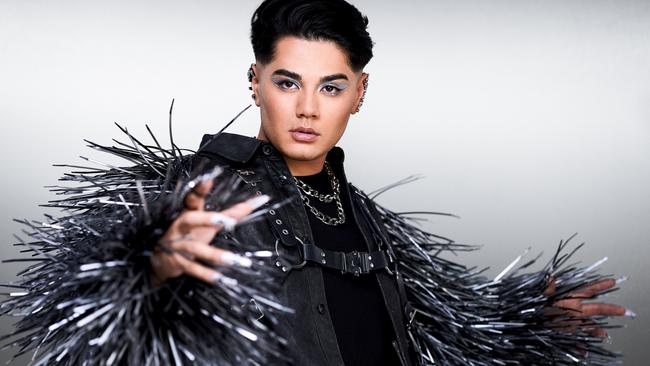
DESTINED FOR BIG THINGS
Deep inside, the gifted singer knew he was destined for “something big and I could achieve that” despite the message “I was not the same” being drilled into him from a young age.
So when the crowd erupted into deafening cheers as he reached the song’s climax at the Australia Decides contest on the Gold Coast in February, he was overcome by the emotion of sharing his truth on stage, his voice cracking as he reached the final notes, as it does now.
“I got so emotional because the audience was so crazy loud, they were loving what I was doing, and it was a lot, because I was singing a song that I had written as a message to myself about how much I wished I wasn’t who I am,” he said.
“It was an important moment, it just meant so much to me.”
Riley has served a long apprenticeship to get his shot at the Eurovision title.
Over the past six years he has competed on The X Factor, made it to The Voice grand final in 2018 and then the semis as an “all-star” in 2019 and reached the quarter-finals of America’s Got Talent in 2020.
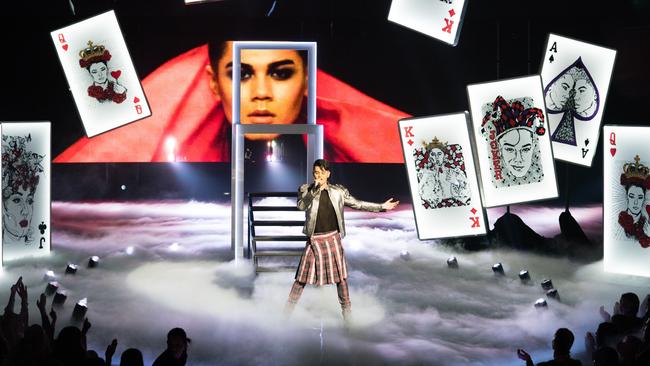
BUILDING A BRAND
While the 23-year-old says reality television shows are a “pretty toxic world to be in 24/7”, he wisely used the opportunities to play with staging and costumes and build his brand.
“Why I’m so grateful for that experience though is the performances I did every week cost more than the prize money so I had a lot of very good footage than not even big record label artists could afford,” he said.
After wearing a dramatic all-black ensemble for the Australia Decides, Riley will debut a very different look in Italy, created by Melbourne fashion designer Alin Le’Kal.
His competition outfit weighs 50 kgs; he has been rehearsing with sandbags to avoid any potential wardrobe-related malfunctions during any of his multiple performances at Eurovision.
“It has 180,000 Swarovski crystals, 90,000 pearls, it’s covered in ostrich feathers, it’s absolutely ridiculous,” he said. “I’m playing with the masculine feminine energy again which is exciting.”
And of course there will be an ornate mask, which has become a signature piece of his performance costume.
In an era where pop stars reveal so much to feed the social media beast, Riley loves the symbolic mystery offered by his face coverings of jewels and chains.
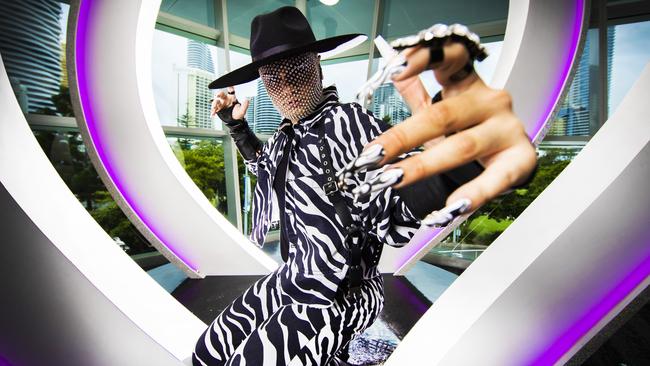
DISPELLING MYTHS
His recent trip to London and Tel Aviv to perform at the influential Eurovision pre-parties, an opportunity to press the flesh and impress future voters, both helped to heighten the mystery around the Australian singer and dispel a few myths.
“I think some of the fans looked at me as this dark Game of Thrones character,” he said.
“I think the mystery is good, it’s good for branding, but I also think we’re in a generation now where everyone wants to know everything about everybody. And there are people that get really pissed off by the fact that they don’t know everything about me.
“And I do post quite a lot to social media but it’s well put together and structured but I think the mystery draws people in to my music and what I have to say.”
Riley, like almost everybody in the arts community over the past couple of years, wishes Australia celebrated the achievements of their singers, songwriters and performers with the same fervour as they do our sporting champions.
As he points out, the Eurovision Song Contest, which will feature 40 competing countries in Turin, is the singing Olympics.
“We’re still new to Eurovision, we’ve only been in it for seven years,” he said.
“But this has a huge global audience, it’s a juggernaut, and look at last year’s winners Maneskin, they’re on the charts all around the world now.
“The world looks at Eurovision and goes ‘wow, while Australia still thinks it’s just another The Voice. And it’s not, it’s massive.”
The 2022 Eurovision Song Contest will air on SBS.
Semi-final 1 is on May 11 at 5am and repeated on May 13 at 8.30pm.
Semi-final 2, featuring Sheldon Riley, airs on May 13 at 5am and repeated on May 14 at 8.30pm.
The Grand Final airs on May 15 at 5am and repeated at 7.30pm.
If you need help please call:
Lifeline Australia – 13 11 14 (available 24/7)
Text 0477 13 11 14
Chat online: lifelife.org.au (7pm-midnight)
Kids Helpline – 1800 55 1800
Kidshelpline.com.au
Beyond Blue – 1300 224 636 (available 24/7)
More Coverage
Originally published as Sheldon Riley reveals ‘dark place’ that inspired Eurovision song




